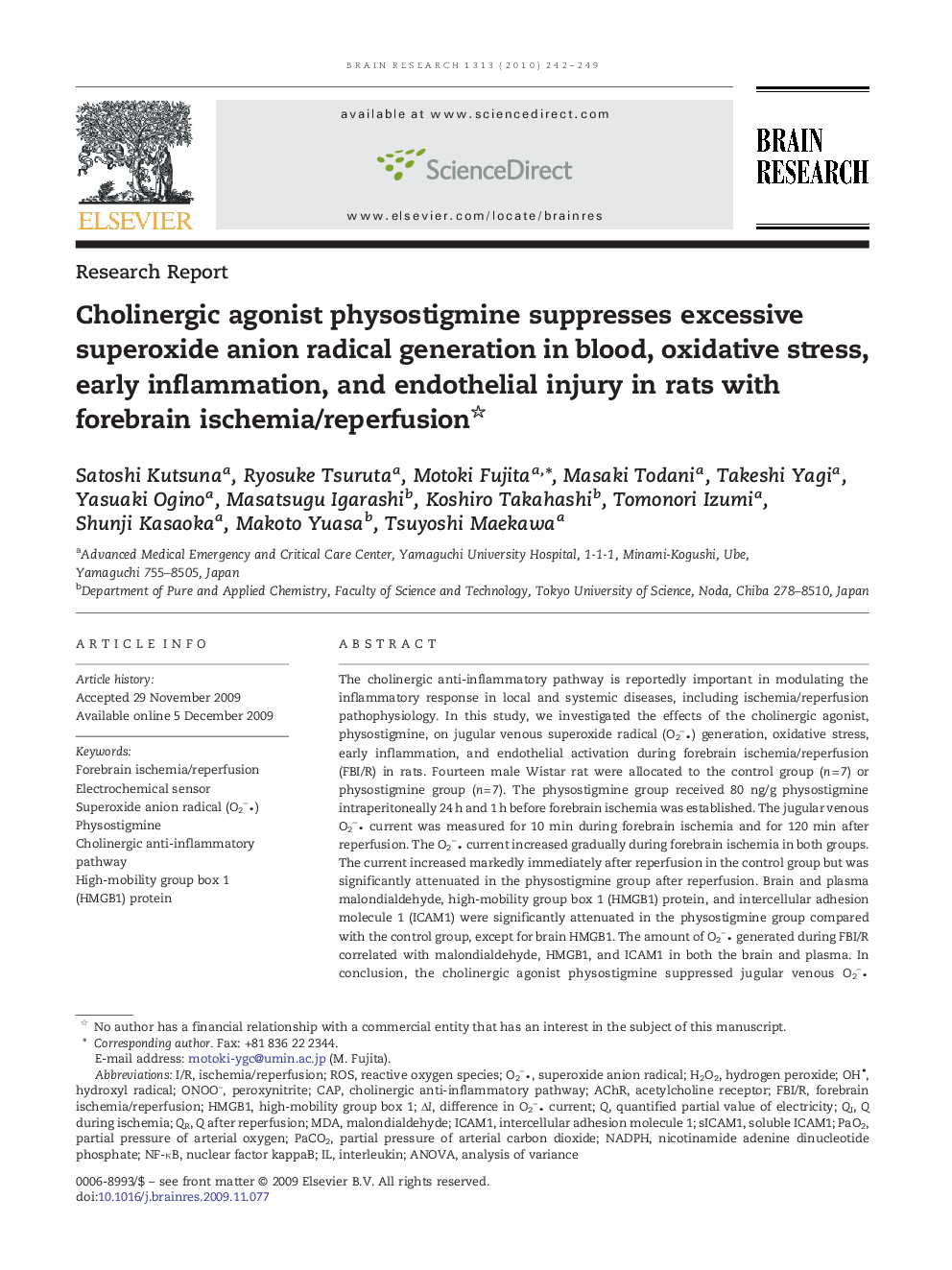| کد مقاله | کد نشریه | سال انتشار | مقاله انگلیسی | نسخه تمام متن |
|---|---|---|---|---|
| 4327315 | 1614126 | 2010 | 8 صفحه PDF | دانلود رایگان |

The cholinergic anti-inflammatory pathway is reportedly important in modulating the inflammatory response in local and systemic diseases, including ischemia/reperfusion pathophysiology. In this study, we investigated the effects of the cholinergic agonist, physostigmine, on jugular venous superoxide radical (O2−) generation, oxidative stress, early inflammation, and endothelial activation during forebrain ischemia/reperfusion (FBI/R) in rats. Fourteen male Wistar rat were allocated to the control group (n = 7) or physostigmine group (n = 7). The physostigmine group received 80 ng/g physostigmine intraperitoneally 24 h and 1 h before forebrain ischemia was established. The jugular venous O2− current was measured for 10 min during forebrain ischemia and for 120 min after reperfusion. The O2− current increased gradually during forebrain ischemia in both groups. The current increased markedly immediately after reperfusion in the control group but was significantly attenuated in the physostigmine group after reperfusion. Brain and plasma malondialdehyde, high-mobility group box 1 (HMGB1) protein, and intercellular adhesion molecule 1 (ICAM1) were significantly attenuated in the physostigmine group compared with the control group, except for brain HMGB1. The amount of O2− generated during FBI/R correlated with malondialdehyde, HMGB1, and ICAM1 in both the brain and plasma. In conclusion, the cholinergic agonist physostigmine suppressed jugular venous O2− generation, oxidative stress, early inflammation, and endothelial activation in the brain and plasma in the acute phase of cerebral ischemia/reperfusion. Therefore, the suppression of O2− is a key mechanism of the cholinergic anti-inflammatory pathway in the pathophysiology of cerebral ischemia/reperfusion.
Journal: Brain Research - Volume 1313, 8 February 2010, Pages 242–249